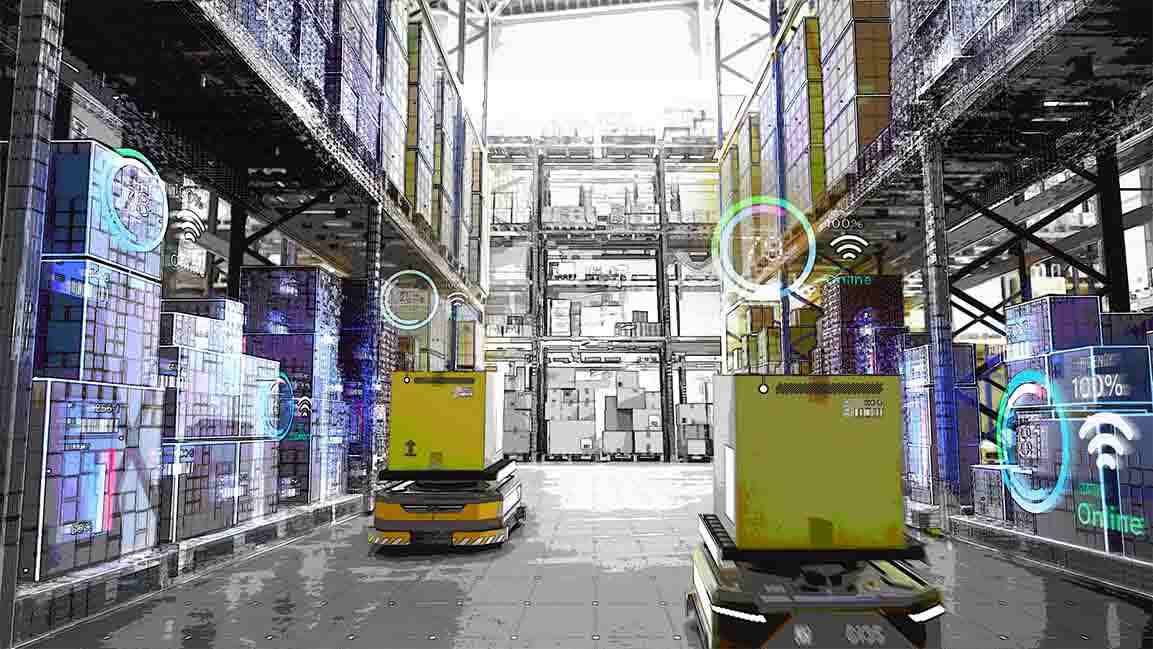- | 9:00 am
Is AI transforming the Middle East’s retail industry?
AI has improved speed, efficiency, and accuracy across every branch of retail business

Brands are quietly working on technologies to change the way customers shop—supermarkets using AI-powered checkout and virtual try-on features allow customers to examine products at home.
Meanwhile, inventory robots restock shelves, and sensors track customer traffic patterns to identify the optimum store layout. AI is revolutionizing the shopping experience, online and in-person.
AI has transformed the retail industry by improving speed, efficiency, and accuracy across every part of retail business, advancing data and predictive analytics systems, and further empowering companies to make data-driven business decisions.
So what’s the future of retail?
“One needs to look at the popularity of massive online games such as Minecraft, Roblox, and Fortnite, to realize that the future of retail is already here. The question is how these and similar platforms will incorporate brands and retailers over time without alienating their users,” says Ryan Den Rooijen, chief e-commerce officer at Chalhoub, a luxury goods retailer and distributor headquartered in Dubai.
TRANSFORMING SHOPPING EXPERIENCES
The Middle East has become one of the leaders in elevating physical retail experiences, with the potential to play a leading role in the digital world.
AI has personalized consumers’ online and in-store buying experiences. I.AM+, a technology startup, launched Omega, a conversational AI platform, throughout Majid Al Futtaim retail stores in the Middle East, starting with Carrefour and VOX Cinemas. With the help of this platform, customers can purchase cinema tickets and groceries using an AI voice assistant.
With online retail giants having also entered the virtual shopping space, what does the future of the retail sector entail in the Middle East in terms of tech and innovation? “It means a customer offering that is a whole lot better, allowing customers to buy anything they want when they want it, be it a loved one gift, that last minute missing ingredient, the fan-favorite board game – and reliability will always win,” says Ahmad Yousry, co-founder and CEO of Rabbit.
Compared to the previously popular one-size-fits-all approach, AI-powered tools ensure a much more engaging, enjoyable online experience – similar to walking into a store and being recognized by its staff.
Cosmetics retail giant Sephora has used the power of data analytics, augmented reality (AR), and AI to become a digital leader. The Sephora app uses some of the most recent AI technologies and models to give users virtual lipstick assistant incentives and promotions. Its interactive tools allow users to experiment with the newest beauty trends and share their designs with the world via rapid social sharing buttons.
Additionally, due to short online attention, customers have been known to spend less than three minutes on a marketplace and compare websites — for the best offer.
“Most consumers already benefit from AI tools without realizing it. For example, to ensure consumers get the best deal, many brands use price-matching technology to ensure their prices are competitive,” adds Rooijen.
GAINS FOR ALL
Like the customers, AI tools can help online sellers predict and implement marketing and pricing strategies that catch the consumer’s attention and help change a visitor to a paying customer.
“Sellers can also massively benefit from using AI tools for their pay-per-click ads on marketplaces or search engines such as Google. These tools can help lower ad costs and do hundreds of bid changes and optimizations per hour which is a huge task for any ads manager,” says Krystel Abi Assi, founder and head of Business Development at Amazon Sellers Society.
Moreover, the pandemic has drastically changed consumer behavior. In a pre-pandemic world, consumers searched the internet for hours, looking for products, and then purchased the same product at a nearby retail store.
Designing an in-app experience that reimagines retail and grocery shopping experience, enabling brands, especially up-and-coming local brands, helps to reach out to infinitely more customers through virtual shelf space. “The more immersive and intuitive the experience is, the better level-playing field it creates with giant household name brands. As for consumers that still enjoy the experience of brick-and-mortar shopping, they are at least equipped with better knowledge of the options available to them through virtual browsing,” adds Yousry.
For sellers, converting customers via one sales channel has become equally important, focusing on one place without worrying that your customers will go elsewhere to make the final purchase.
To achieve this, Assi says, “sellers currently have to focus on their websites and marketplaces as well as their retail stores and sometimes sacrifice one for the other due to team sizes, lack of budgets, or even simply because they prefer one channel to the other.”
EFFECT ON SHOPPING SEASONS
With consumers’ habits changing and constantly evolving, retailers must understand the tools to keep up with the ever-changing consumer mindset. There are several practical ways that AI applications are changing how people shop and sell.
“During peak periods such as the Dubai Shopping Festival, it is critical that retailers can put the right product in front of the right customer. After all, a brand like Faces has thousands of products, and promoting them would overwhelm people,” says Rooijen.
Holiday seasons have a surge in customer demand but are also a time when consumers are overwhelmed with choices, bombarded with a myriad of ads and options vying for their attention, online and offline. “AI can help increase customer purchase likelihood by providing more relevant recommendations that are in line with their usual preferences, favorite brands, and price ranges, informed by none better than themselves,” adds Yousry.
Based on historical purchase data using AI, segmentation is important to understand what products should be showcased to which audiences based on their predicted level of interest. “This way, we can cut through the clutter and focus on surprising and delighting our customers,” Rooijen adds.
Relying on AI can help retailers and sellers make better data-driven decisions. With proper tools, retailers can quickly sift through the mountains of data and focus on the products that customers want.
“This has never been more important than during peak sales seasons when online and offline sellers compete for customers’ attention. Predicting your consumer’s needs and market trends has never been more important,” says Assi.








































